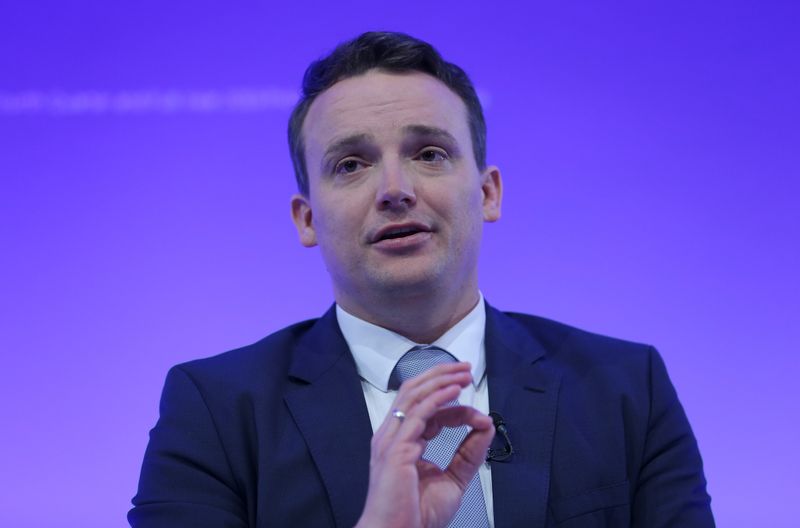By Douglas Busvine and Nadine Schimroszik
BERLIN (Reuters) - The coronavirus pandemic has brought the latest experiment in dual leadership at SAP (DE:SAPG) to an abrupt end as the German business software group named Christian Klein as its sole CEO to provide clarity to its 400,000 customers.
Klein will assume full responsibility while Jennifer Morgan, who was appointed alongside him last autumn to jointly run the world's largest enterprise software company, will leave on April 30.
"What we figured out is that we have a responsibility to give our customers clear guidance," Klein, 39, told reporters on Tuesday.
The latest boardroom upheaval sent SAP shares down 3.2%, however, highlighting a lack of clarity over who would assume Morgan's responsibilities for the group's cloud business and customer relationships.
Morgan, 48, became the first woman CEO of a German blue-chip company but the American's tenure was cut short by the sudden economic slump that struck in March as coronavirus spread around the world.
Her exit follows those of management board members Michael Kleinemeier and Stefan Ries announced in February.
FOUNDER'S SHARE
In a message to staff, SAP's co-founder and Chairman Hasso Plattner made it clear that the dual leadership structure had not worked but did not say what exactly had gone wrong.
"I have always believed that co-CEO models have their place and their time, after all I was a co-CEO once. But this has turned out to not be that time," wrote Plattner, who once co-ran SAP with Dietmar Hopp and, later, Henning Kagermann.
"Therefore, for the benefit of our company and our customers, we felt it was crucial to have one sole CEO navigate us through this unprecedented change."
Plattner, 76, exerts influence that far exceeds his 6% stake, and his backing for Klein represents a return to SAP's German roots after the company took on a more American flavour during New Yorker Bill McDermott's decade in charge.
For users in SAP's home markets, Klein's ascent will change little as he was already their main interlocutor, said Marco Lenck, the head of the DSAG, or German-speaking SAP user group.
"We will look and see whether SAP, under pressure from this crisis, can succeed in integrating its operations and focusing on its customers," Lenck told Reuters.
SPENDING STOP
SAP confirmed results pre-released on April 8, when it reported a 1% gain in quarterly operating profits and cut its forecast for earnings to show an expected decline this year of between 1% and 6%.
Finance chief Luka Mucic said demand would decline in the second quarter but anticipated an improvement from the third quarter as governments gradually lift lockdowns that have hurt economic activity.
SAP remains strongly cash generative and will slow hiring and restrict discretionary spending to ride out the crisis. It will not seek state aid or put any of its 100,000 staff on short-time work, Mucic said.
The company will conduct no further share buybacks in 2020 having completed a repurchase programme worth 1.5 billion euros ($1.6 billion), he added.
SAP stood by its mid-term goal of expanding its profit margin by one percentage point per year through 2023 as more customers switch to running business processes, such as finance or supply chain management, on cloud-based servers.

"We are very confident that we will again emerge as a stronger company and clear leader after the crisis," said Mucic, whose contract was recently extended until 2026.